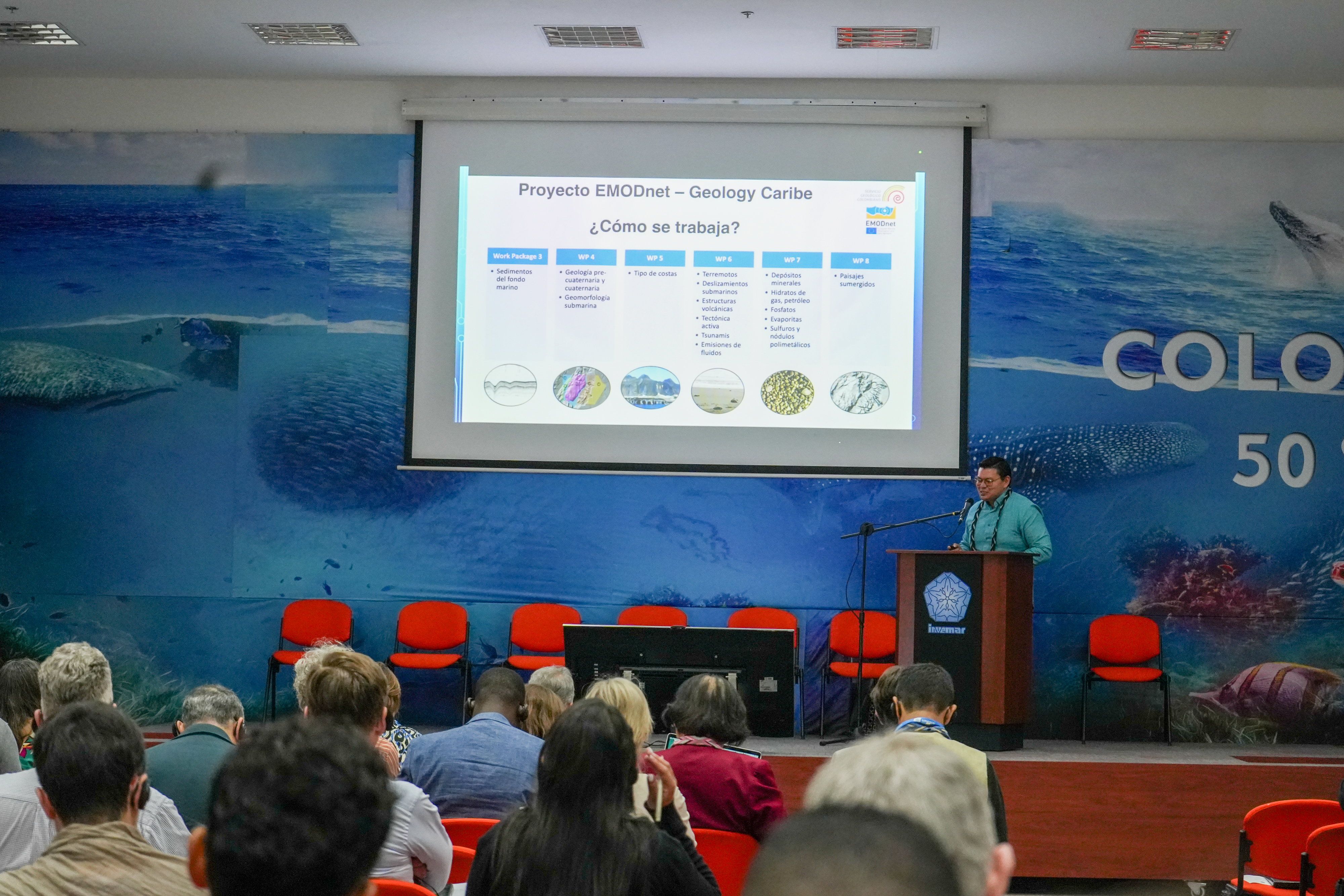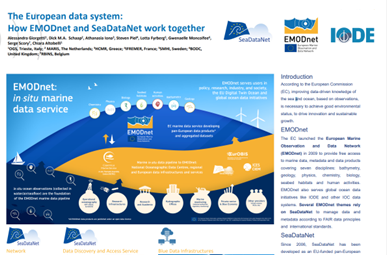Many EMODnet experts attended the International Ocean Data Conference (IODC III), held on 10–11 March 2025 at INVEMAR in Santa Marta, Colombia. This event brought together global marine data actors to advance open, FAIR, and interoperable ocean data systems with thematic session on marine biodiversity data, capacity building and the global ocean data ecosystem. Check out the EMODnet and wider posters, presentations and highlights online!
The third International Ocean Data Conference (IODC III), held on 10–11 March 2025 at INVEMAR in Santa Marta, Colombia, served as a global platform to shape the future of ocean data access and governance. This hybrid event—combining both in-person and online participation—emphasised the critical importance of Open and FAIR (Findable, Accessible, Interoperable, and Reusable) marine data. The central focus of the discussions was enhancing interoperability and standardisation to support international marine and environmental policy frameworks.

Figure1. EMODnet Geology Presentation at IODCIII ©INVEMAR
Key themes addressed on the first day of the conference included the capacity of ocean data systems to meet growing societal and scientific demands. Discussions covered the development of robust marine data infrastructures, harmonised processes, and the adoption of best practices to integrate Open Science and FAIR principles at local, regional, and global scales. Emerging technologies were also in focus, particularly their role in improving ocean knowledge and biodiversity assessments, as well as the challenges they pose for data integration and accessibility for non-specialised audiences. Improving the usability and reliability of user-focused data systems and advancing regional capacity through collaboration were also prominent topics. The importance of human capacity—training, engagement, and recognition—was highlighted as a foundation for effective marine data sharing and global scientific cooperation.
On the second day, the programme shifted toward ocean governance and the evolving digital ocean landscape. Sessions explored the creation of digital ocean ecosystems through interdisciplinary collaboration, aiming to enhance the accessibility and usability of ocean data for conservation, sustainable resource use, and knowledge transfer. Further discussions addressed the integration of marine data into decision-making frameworks such as Marine Spatial Planning (MSP) and Integrated Coastal Zone Management (ICZM). The role of data in empowering communities and incorporating local knowledge was recognised as key to ensuring inclusivity and equity in digital ocean governance.
EMODnet played an active role throughout IODC III, showcasing its services, partnerships, and contributions to the global ocean data ecosystem. EMODnet representatives shared progress and perspectives through thematic presentations and posters. The EMODnet Geology Caribbean Sea Group highlighted efforts in harmonising marine geological data to support sustainable development in the region. EMODnet Data Ingestion presented its capacity development approach, supporting open and FAIR data access via EMODnet’s in situ marine data service. EMODnet Biology contributed insights on marine biodiversity data management at the EU level, while EMODnet Chemistry, demonstrated advances in marine data integration and access through the collaboration of EMODnet and SeaDataNet with a presentation and dedicated poster titled “The European data system: How EMODnet and SeaDataNet work together”. A dedicated presentation also highlighted EMODnet’s broader role in the global ocean data ecosystem and its contributions to the UN Ocean Decade.

Figure 2. Image of The European data system: How EMODnet and SeaDataNet work together” poster at IODCIII ©EMODnet Chemistry
EMODnet’s strong presence at IODC III reaffirmed its commitment to supporting global marine data sharing and ocean knowledge advancement. Through its collaborative, user-driven approach, EMODnet continues to contribute to a more connected, interoperable, and sustainable digital ocean landscape.
